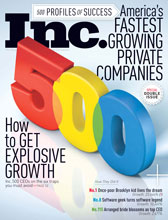 The most likely sources of information in your organization are those who have handled a specific customer before, those who have worked for the customer, and those who have worked for your most likely competitor in this deal. Virtually every organization I've ever been in employs people who have worked for either its customers or its competitors. I have found, though, that the hardest thing to do is to find out exactly who those people are. In addition, the larger the selling organization, the harder it is to find them. At the same time, however, the larger the selling organization, the more likely it is that people are there who will be able to help you.
The most likely sources of information in your organization are those who have handled a specific customer before, those who have worked for the customer, and those who have worked for your most likely competitor in this deal. Virtually every organization I've ever been in employs people who have worked for either its customers or its competitors. I have found, though, that the hardest thing to do is to find out exactly who those people are. In addition, the larger the selling organization, the harder it is to find them. At the same time, however, the larger the selling organization, the more likely it is that people are there who will be able to help you.
The most effective way to find these people is to reach out to as many department heads as possible. Include those within the sales function, but also include people in manufacturing, finance, marketing and other departments. Let those department heads know you are involved in a very important negotiation with this customer. Ask them if anyone in their group has worked for or with the customer or for one of your competitors, and tell them that you would appreciate those individuals providing you with 10 to 15 minutes of coaching. Once you've reached someone who can help, ask that individual to provide you with as much information as he or she can covering these four questions:
- What really is the other side's consequences of not reaching ageement with us?
- What elements are included in that?
- Are those elements costs or benefits, hard or soft, and short term or long term?
- How does the other side see it's consequences of not reaching agreement with us?
Of course, exactly from whom you choose to sollicit information depends on what you've estimated the other side's Consequences of No Agreement (CNA) in this negotiation to be. For example, one of our clients is a provider of data and data services, so of the three most common customer CNAs - buying from one of their competitors, doing it themselves, or doing nothing (i.e., spending the money on something else) - our client's salespeople often found themselves up against the second. "Why should we buy from you?" they heard from potential customers. "We can build it ourselves, and it'll not only be cheaper but it'll be better customized for our needs."
Faced with this situation, the company's salespeople went to those in their organization who had the responsibility for designing, implementing and managing databases. What they asked the designers for was a sense of the elements of the client's choice to build their own database. Things like collecting the data, rationalizing the data, updating the data, global versus national data, maintaining accuracy, and so on. Armed with that knowledge, the salespeople were better able to formulate specific questions about each element of the customer's CNA and determine, for each of those elements, whether it would actually be better for the customer to do it themselves.
Now is the time to broaden your knowledge of the other side's CNA by looking for answers beyond yourself to others in your organization. If you've already done this, what type of information did you uncover and how did you use it?





